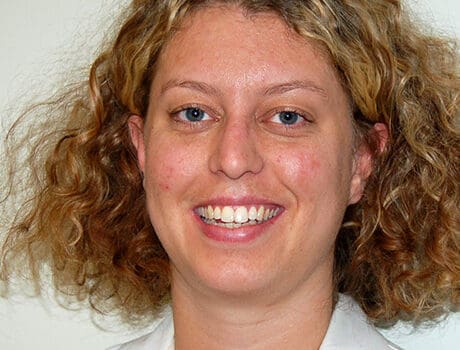
Tore Flatlandsmo Berglen
Dr. Tore Flatlandsmo Berglen is a senior researcher at the Department of Urban Environment and Industry. He received his PhD in Geosciences at the University of Oslo in 2006 with a thesis on the sulphur cycle in the atmosphere, with a particular focus on natural and anthropogenic emissions of sulphur dioxide (SO2) and sulphate particles.
Tore has worked at NILU since 2008 and leads various industrial projects concerning monitoring of air quality close to industrial facilities, dispersion calculations and CCS (Carbon Capture and Storage).
For a number of years, he was responsible for the monitoring project in the border areas with Russia. Air quality in the border areas was strongly affected by emissions of sulphur dioxide (SO2) and heav metals (Nnickel, copper, cobalt and arsenic) from Russian smelters in Nikel and Zapolyarny. The smelter in Nikel was shut down in December 2020 and there was an upgrade of the briquetting plant in Zapolyarny. Emissions fell sharply, and thus the air quality in the border areas has also improved. Tore also has other projects in Eastern Finnmark, including studies of the environmental impact of war remnants, moss sampling and analysis, and dioxins around Kirkenes.
Carbon capture and storage (CCS) is becoming an increasingly important field in terms of transition and the path towards a zero-emission society. Amines are a well proven technology for capturing CO2, but there have been concerns about the release of amines and degradation products from amines, especially nitrosamines and nitramines. NILU has many projects to study emissions from CCS facilities and environmental impact.
Tore also works with dispersion calculations from industrial companies and influence on a local and regional scale. These are projects for both the oil and gas industry and metal industry.
Leonie Bernet
Dr. Leonie Bernet obtained a PhD in Climate Sciences from the University of Bern, Switzerland.
She is an expert in trend analyses of ozone and water vapour, using measurements from ground-based remote sensing techniques. Her work focuses primarily on long-term changes of stratospheric ozone at mid-latitudes and in the Arctic.

Riccardo Boero
Dr. Riccardo Boero is a Senior Scientist at NILU within the Department for Environmental Impacts and Sustainability. His extensive academic and research career has included positions at various European institutions and a decade-long tenure at Los Alamos National Laboratory (LANL) in New Mexico, USA, before transitioning to NILU in 2022.
Riccardo holds a PhD in Economics from the University of Pavia, Italy, and a PhD in Sociology from the University of Surrey, UK. His research spans Climate Impacts Adaptation and Vulnerability, Computational Social Science, and Experimental and Behavioral Economics.
Focusing on the critical social and economic dynamics that drive sustainable progress, Riccardo is committed to open science and dedicated to innovating methodological approaches that achieve significant real-world impacts.

Pernilla Bohlin-Nizzetto
Dr. Pernilla Bohlin Nizzetto is Research Director and Head of NILU's Department of Environmental Chemistry and Health Effects.
She holds a MSc in Chemistry and a PhD in Occupational and Environmental Medicine from the University of Gothenburg in Sweden in collaboration with Lancaster University in the UK. She also has a 2-year post-doc from RECETOX at Masaryk University in the Czech Republic.
Since 2022, Nizzetto coordinates the Horizon Europe project INQUIRE (Identification of chemical and biological determinants, their sources, and strategies to promote healthier homes in Europe), which is part of the EU's IDEAL Cluster. In INQUIRE, the goal is to improve air quality and reduce the occurrence and exposure to harmful substances in indoor environments.
During her 15 years as a researcher in environmental chemistry, Nizzetto has focused on environmental chemistry issues indoors and outdoors with a desire to protect people, the environment and ecosystems.

Evert Alwin Bouman
Evert A. Bouman PhD, Senior Scientist, Department of Environmental Impacts and Sustainability at NILU, P.O. Box 100, NO-2027 Kjeller, Norway
Evert Bouman works on developing methods within the field of Industrial Ecology. His expertise lies in the development of life-cycle based scenario models, drawing on methods such as Life Cycle Assessment, Input-Output Analysis and Material Flow Analysis. These models provide insight in environmental trade-offs, co-benefits and problem shifting related to climate change mitigation policies and policies aimed at circular and sustainable transitions.
He holds Master degrees in Industrial Ecology (2011) and Chemical Engineering (2012) and a PhD in Industrial Ecology (2015). At NILU, Bouman has been task leader for various tasks in the European Topic Centres on Air Pollution, Noise, Transport and Industrial Pollution (ETC/ATNI) and Climate Change Mitigation and Energy (ETC/CME) for the European Environment Agency, working among others on methodologies for assessing the benefits and trade-offs of renewable energy sources in the European energy system, decomposition analysis of emissions trends, and emissions outsourcing in global trade. In addition, he is Work Package leader for risk-benefit assessment of engineered nanomaterials in the Horizon 2020 funded European research project RiskGONE, work package leader on the life cycle impacts of plastic recycling scenarios in the nationally funded project Plastcycle, and NILUs principal investigator in the national funded Centre for Science-Based Innovation (SFI) earthresQue. Finally, Bouman leads NILUs in-house model development for sustainability assessment in the project DECIAS.





